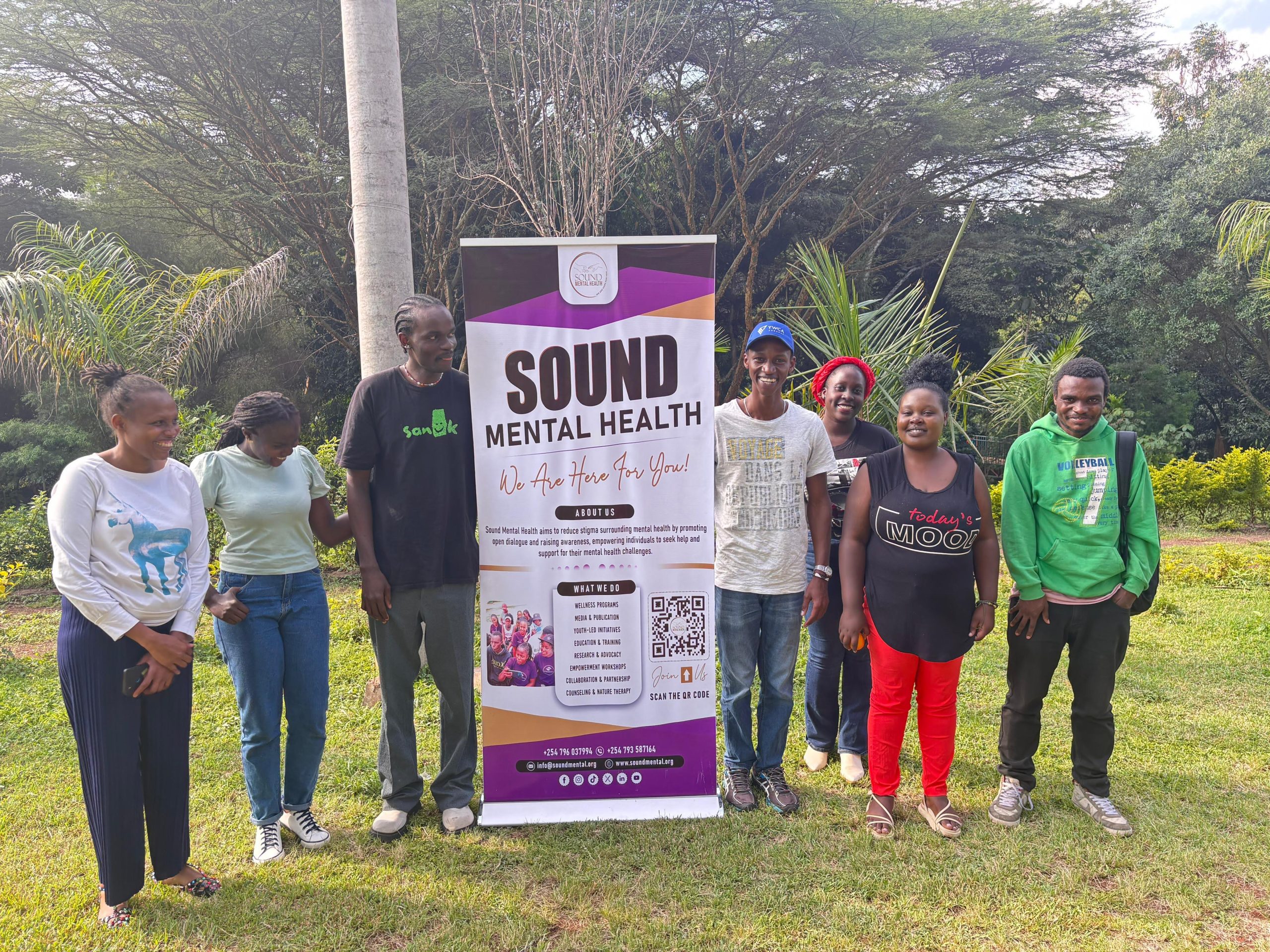We're Here For You!
Aiming to minimize the stigma surrounding Mental Health.
Our Impact at a Glance
We deliver measurable impact through counseling, community engagement, and strong partnerships—reaching millions and supporting meaningful mental wellness outcomes.
Workshops & Events
Impacted Individuals
Partners & Collaborators
Counseling Sessions


About us
Our Mission
Sound Mental Health is mental health organization aiming to minimize the stigma surrounding mental health. We believe that by fostering open discussions and promoting awareness, we can help individuals feel more comfortable seeking help and support for their mental health challenges.
- Advance mental wellness awareness.
- Identify early mental health signs.
- Support recovery and resilience.
- Advocate for better mental health care.
WHAT WE DO
Our Programs
We deliver impactful programs designed to educate, support, and strengthen mental well-being across communities.
Bi-weekly Webinars
Training Programs
Talk Shows
Workshops
Nature-Based Wellness
Charity Visits
COMMUNITY
Learn. Connect. Grow.
Education and community experiences that strengthen mental well-being.
Training Courses
Expert-led courses that build resilience and promote mental wellness for individuals, professionals, and organizations.
Events & Activities
Workshops and wellness activities that educate, inspire, and support your mental health journey.

Testimonials
Honest Community Reviews
Learn from individuals and organizations who have experienced the impact of our mental health programs, services, and community initiatives.
Frequently Asked Questions (FAQs)
Welcome to our Frequently Asked Questions! We’ve gathered common inquiries to provide quick answers and clear any doubts. If you need more help, feel free to reach out—we’re here to assist you.
What is Mental Health?
Mental health encompasses our emotional, psychological, and social well-being, empowering us to navigate life’s challenges, cultivate resilience, and foster strong coping mechanisms and interpersonal skills.
What is Mental Illness?
Mental illness encompasses a diverse array of conditions and disorders that influence an individual’s mood, thoughts, and behaviors. These conditions can significantly affect daily functioning and overall well-being.
What Types of Mental Illness Exist?
Mental illnesses encompass:
- Mood Disorders (e.g., depression, bipolar disorder)
- Anxiety Disorders
- Personality Disorders
- Psychotic Disorders (e.g., schizophrenia)
- Eating Disorders
- Trauma-Related Disorders (e.g., Post-Traumatic Stress Disorder)
- Substance Use Disorders
What Causes Mental Illness?
Mental illnesses are typically caused by a combination of biological, psychological, and environmental factors:
Biological Factors:
- Neurochemical Imbalance: Irregularities in brain chemicals (neurotransmitters) can interfere with communication between brain cells, contributing to symptoms of mental illness.
- Genetics: Mental illnesses often run in families, increasing susceptibility among relatives.
- Infections or Brain Injuries: Certain infections or injuries may trigger or worsen mental health conditions.
- Structural Issues: Brain “wiring” issues from trauma or other causes can also contribute to mental illness.
Psychological Factors:
- Vulnerabilities like extreme personality traits, cognitive distortions, or chronic hopelessness.
Environmental Factors:
- Stressors like loss, trauma, neglect, discrimination, or exposure to war, poverty, or substance abuse.
What Are Some Warning Signs of Mental Illness?
Common signs include:
- Persistent sadness, irritability, or anxiety
- Difficulty concentrating
- Extreme mood swings
- Withdrawal from social activities
- Changes in eating or sleeping habits
- Suicidal thoughts or behavior
- Increased reliance on substances like alcohol or drugs
If you notice these signs in yourself or someone else, it’s essential to seek help promptly.
Can People Recover From Mental Illness?
Yes, mental illness is treatable. With the right treatment and support, many individuals recover fully or learn to manage their symptoms effectively, leading fulfilling and productive lives.
How is Mental Illness Treated?
Treatment depends on the type and severity of the illness. Common options include:
- Psychotherapy: Talk therapy with a licensed professional.
- Medication: Prescribed drugs to balance brain chemistry.
- Combined Treatment: A mix of therapy and medication.
- Electroconvulsive Therapy (ECT): For severe cases under medical supervision.
Treatment can take place in outpatient settings or hospitals depending on the individual’s needs.
What’s the Difference Between a Psychiatrist and a Psychologist?
Psychiatrists are medical doctors who can prescribe medication.
Psychologists are not medical doctors but specialize in psychotherapy to treat mental health issues.
How Can I Improve My Mental Health?
Your habits and lifestyle play a crucial role in maintaining mental wellness:
- Sleep: Aim for 7–9 hours of restful sleep each night. Establish a routine, and avoid caffeine or alcohol before bed.
- Nutrition: Eat a balanced diet with wholesome foods to support mood and energy.
- Physical Activity: Exercise regularly to boost both mental and physical health.
- Social Connections: Build and nurture positive relationships. Seek support when needed—you’re not alone.
What Should I Do if Someone Shows Signs of Mental Illness?
Do not ignore the signs or assume the person will “snap out of it.” Encourage them to talk to a family member, counselor, or mental health professional. If the situation is urgent, seek immediate help.
We hope this FAQ has been helpful. For further support, contact us—your mental well-being is our priority.
